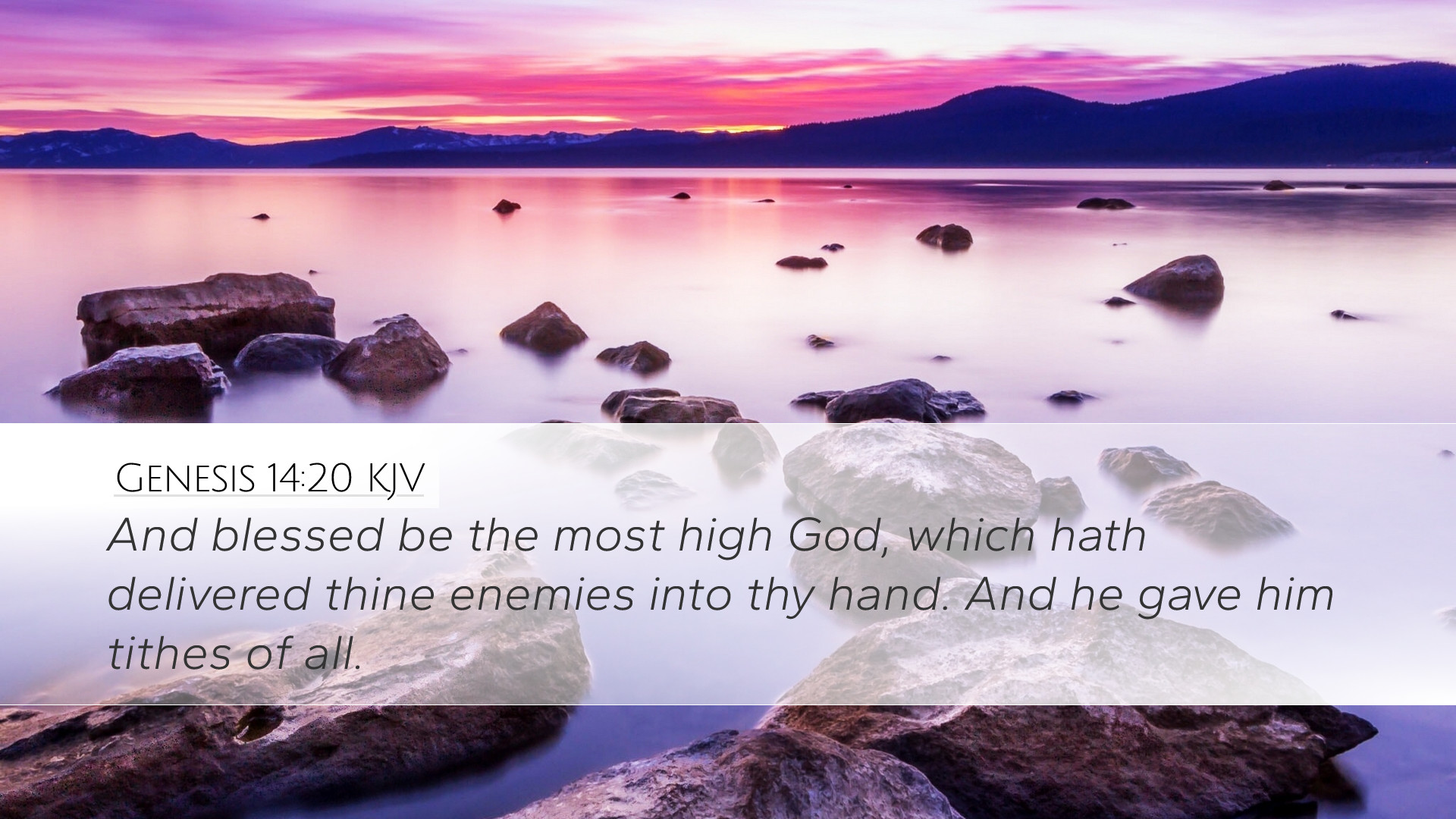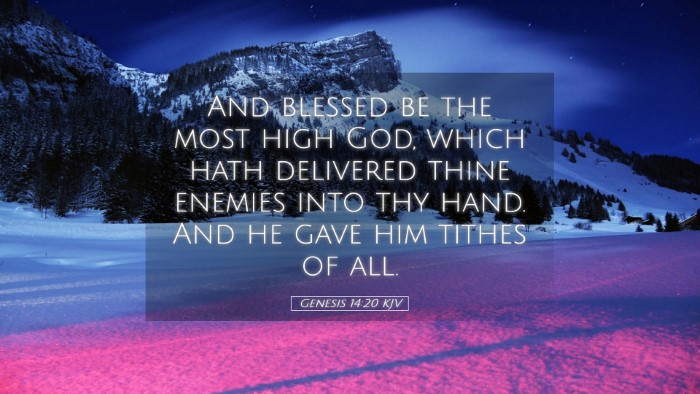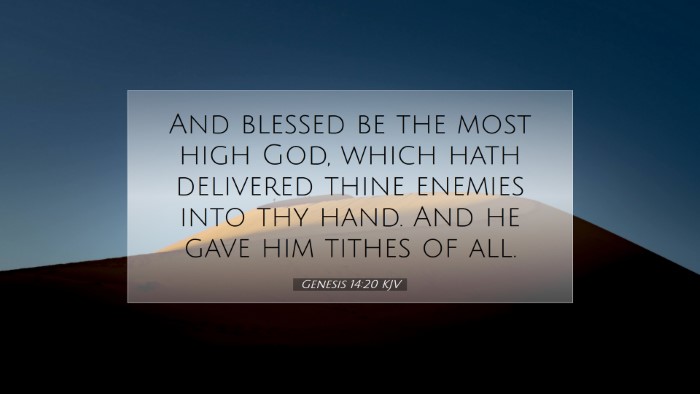Genesis 14:20 - Bible Commentary Summary
"And blessed be the most high God, which hath delivered thine enemies into thy hand." - Genesis 14:20
This verse highlights a significant moment in the biblical narrative where Melchizedek, the king of Salem, blesses Abram for his victory over the kings that had captured Lot. This event not only illustrates the spirituality behind warfare but also reveals profound theological implications regarding the nature of God and His providence.
Overview of the Context
The setting of Genesis 14 is the aftermath of a battle where Abram pursues the alliance of kings to rescue his nephew Lot. This account arrives shortly after God’s covenant with Abram, emphasizing the patriarch’s faith and divine support.
The Character of God
1. The Most High God:
The title "Most High God" (El Elyon) signifies God's supreme sovereignty over all. According to Matthew Henry, this phrase indicates not only God's rank but also His governance over nations and history. His capability to deliver reflects His omnipotence, which resonates throughout Scripture.
2. Divine Deliverance:
This text underscores that it is God who delivers: "which hath delivered thine enemies into thy hand." Albert Barnes emphasizes that Abram’s success in battle was not merely a product of military strategy or strength but was fundamentally rooted in divine intervention. The victories of the faithful can be viewed as manifestations of God fulfilling His promises.
Theological Implications
This short verse holds rich theological significance. It heralds themes of blessing, victory, and God’s active involvement in the lives of His people:
- God as the Source of Blessings: The blessing bestowed by Melchizedek serves as a reminder of the importance of recognizing God's hand in our victories.
- The Role of Faith: Abram’s faith and trust in God are reaffirmed through this encounter, reflecting the essence of a believer's reliance on divine providence amidst trials.
- Christological Foreshadowing: Melchizedek’s priestly role prefigures Christ’s eternal priesthood, indicating that all blessings stem from Him. Adam Clarke notes the typological connection between Melchizedek and Christ, emphasizing that just as Melchizedek blessed Abram, Christ bestows ultimate blessings on believers.
Reflection for Believers
The blessings in our lives, as seen in Abram's encounter, should prompt us to give thanks to the "Most High God." In moments of triumph or trial, it is crucial for believers to recognize God's influence and trust in His deliverance.
1. Remembering God’s Faithfulness:
“The Lord has delivered me in the past; He will deliver me again.” This mindset aligns with the theme of remembrance throughout Scripture and encourages believers to testify of God’s faithfulness.
2. Offering Our Blessings:
Abram’s encounter with Melchizedek illustrates the importance of acknowledging and sharing blessings. As we receive from God, we are called to bless others in His name. This reciprocal relationship should inspire a culture of gratitude and ministry among the faithful.
Conclusion
Genesis 14:20 captures a pivotal moment that emphasizes divine providence in human affairs. Through the lens of Melchizedek's blessing upon Abram, we are reminded of God's sovereignty, the importance of faith, and the continuous thread of redemption that ultimately finds its culmination in Jesus Christ. As we delve deeper into this verse, may it challenge us to reflect more profoundly on our relationship with the "Most High God," understanding our role as conduits of His blessings in a world in need.


